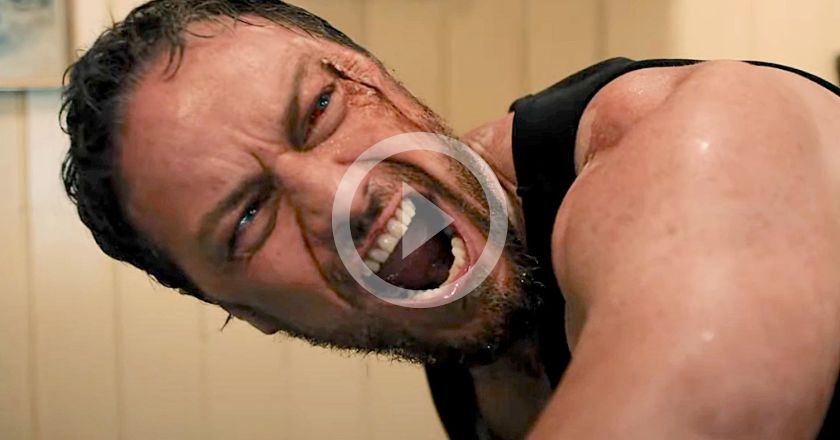Written by Guillermo Troncoso. Reviewed as part of the 2014 Audi Festival of German Films. Click HERE for the festival schedule and to purchase tickets.

Caroline Link’s film Nowhere in Africa, which told the story of a German family adjusting to life in Kenya, took home the Best Foreign Language Film Oscar at the 2003 Academy Awards. It was an emotional and involving look at the differences and similarities between cultures, and a family struggling to adjust in a foreign country while their personal dilemmas rage on. Exit Marrakech sees Link exploring similar themes ““ foreigners dealing with family matters while on foreign soil – and marks a return to form for the writer-director.
Samuel Schneider stars as Ben, a sixteen-year-old boy who is sent by his mother in Germany to his father in Marrakech, Morocco, in an attempt for the two to build a closer relationship. Ben’s parents have been divorced for some time and his father, whose life seems devoted to his career as a play director, has begun life with a new family, including a half-sister that Ben is yet to meet. Ben’s resentment towards his father, for starting his own life while barely being a part of Ben’s, boils to the surface quickly. When the two experience a falling out, Samuel leaves town with a prostitute that he has quickly become infatuated with, kicking off a cross-country adventure with a worried father in-tow.
It’s a simple yet strong story, beautifully told with a large thematic scope and Link’s great eye for detail. Exit Marrakech works on many levels. It’s about a boy’s relationship, or lack thereof, with his father, but it takes the discussion to a wider level. There’s a wonderful worldview put forward here, with Morocco, its land and its people, representing a mirror image of issues that are all too universal.

Samuel Schneider is brilliant as Ben, a confident teenager who wants nothing more than to explore this world independently. He’s a character that could have easily come across as irritatingly spoilt, and while he does initially fulfil that description, we grow to care for him. His exploits are without consideration, worrying his parents like crazy as even the police are set on the search for this “missing” teen, but they are downright fascinating, as we’re given a look at the beautiful country of Morocco barely seen in cinema.
Ulrich Tukur (The Lives of Others, The White Ribbon) is also great as the father, a man trying his best to re-enter his son’s life while dealing with his own shortcomings.
Special mention has to go to Hafsia Herzi, who is absolutely luminous as Karima, the aforementioned prostitute. She gives a wonderful performance as a girl doing what she has to do to support her poor family. The relationship that develops between her and Ben is nicely realised, and her need to stay within the parameters of her family’s cultural identity is convincingly portrayed.
There’s a talented team behind the scenes here too. From the busy city streets to the beautiful stretches of desert, cinematographer Bella Halben wonderfully photographs the country. Niki Reiser’s great score also adds depth to the proceedings.
For all the positive factors on display here, there are a few quibbles, mostly with the narrative, that detract from the film’s quality. Scenes are unnecessarily stretched out without proper reason and there are certain plot developments that don’t add up to much. Ben’s issue with diabetes is put forward way too obviously, leaving no doubt that this will pop up down the track. What ultimately develops is somewhat predictable, with a final act that doesn’t bring as much surprise as it should.
The issues regarding pacing and narrative aside, Exit Marrakech is ultimately a beautifully directed love-letter to Morocco, to family, and to the cultural differences and similarities that envelope our world.
THE REEL SCORE: 8/10
– G.T.







